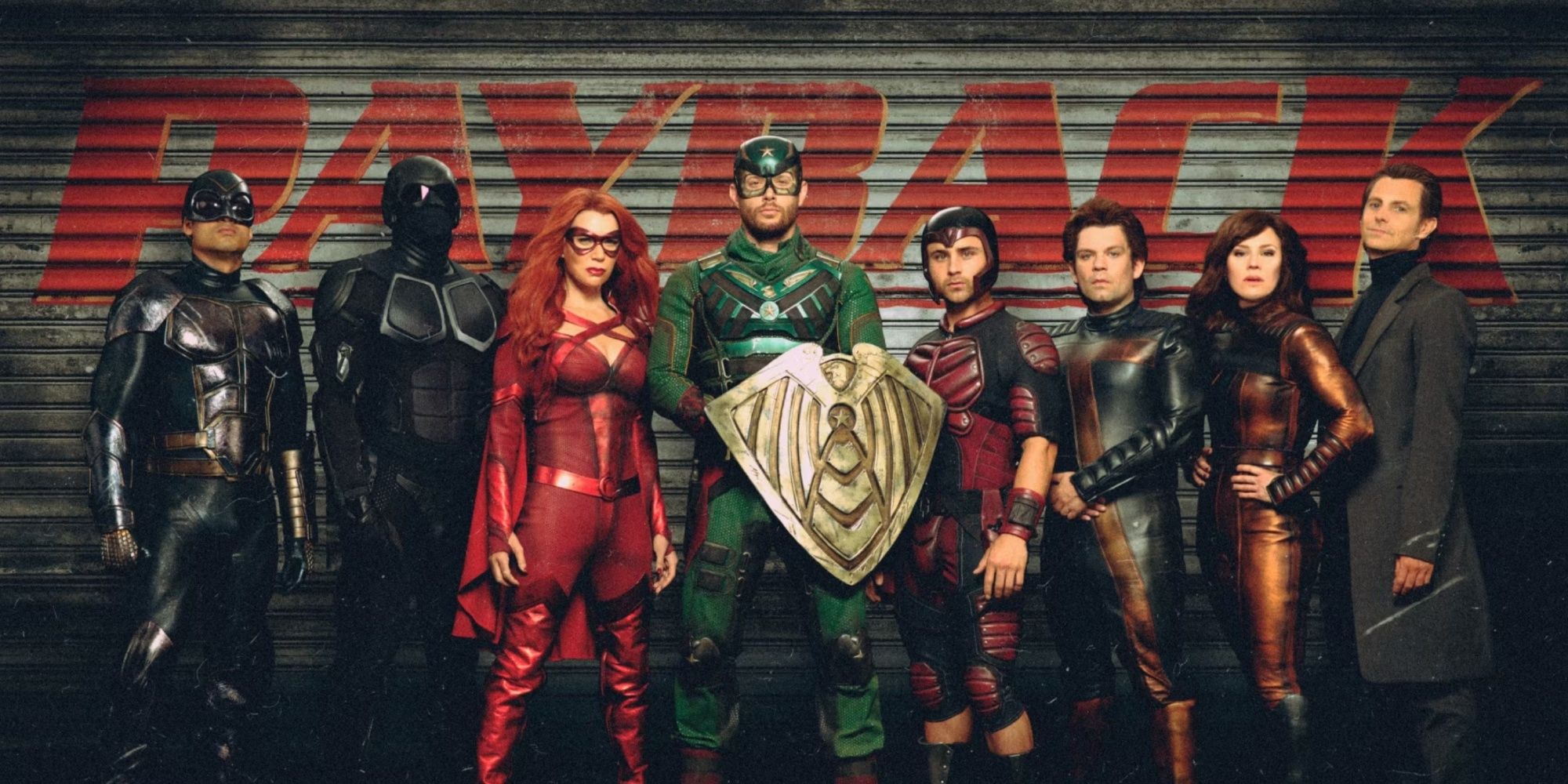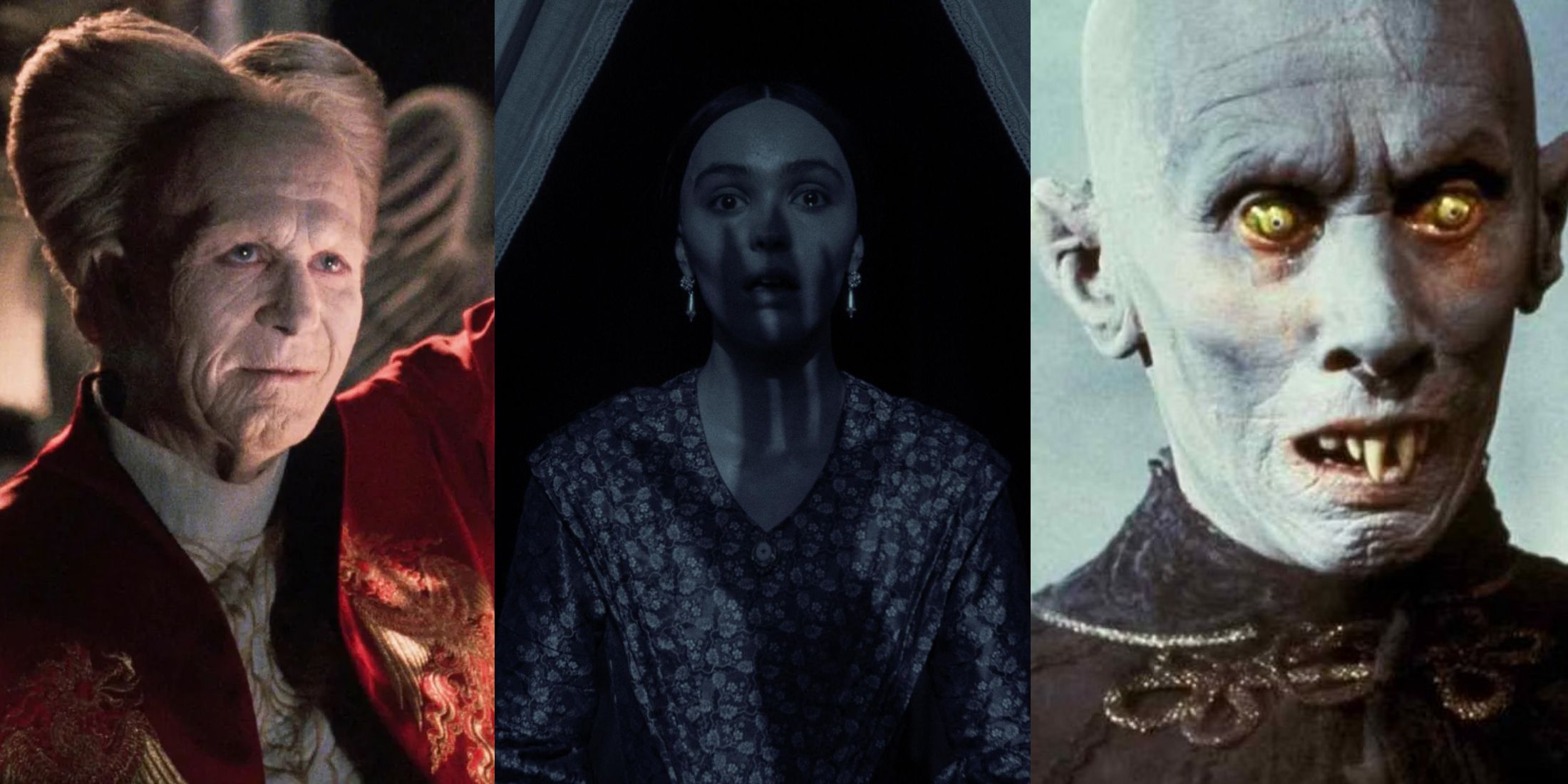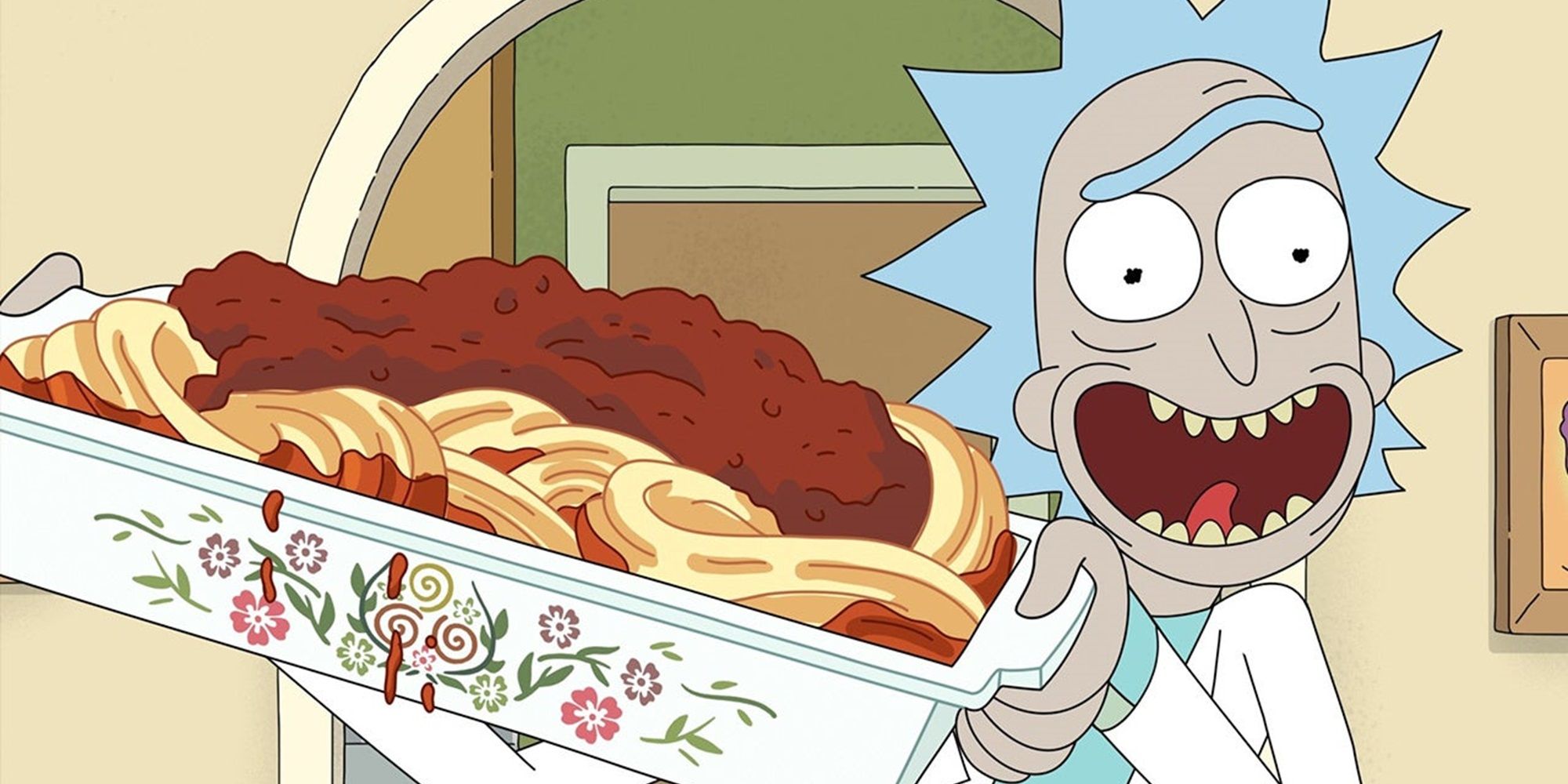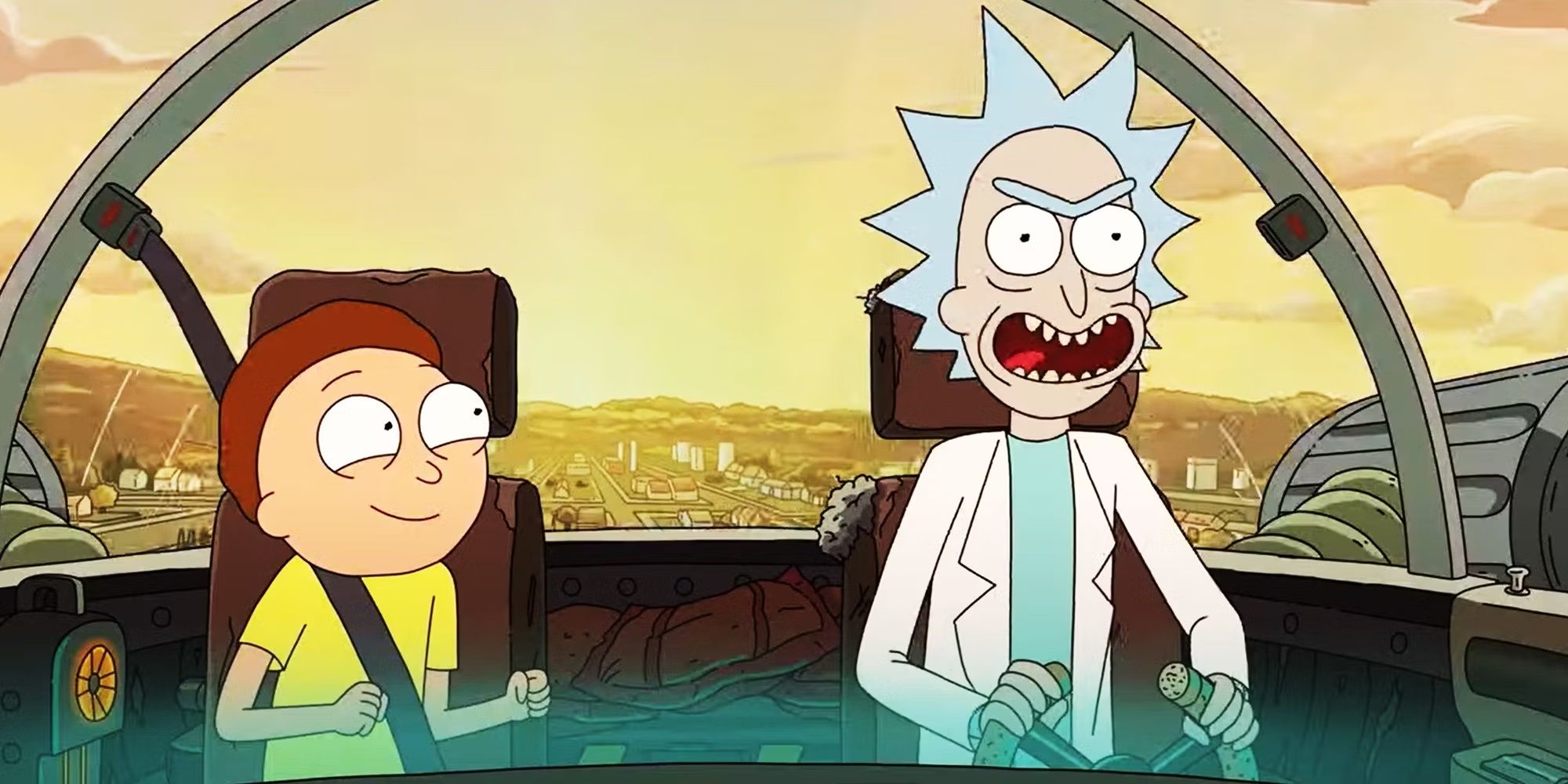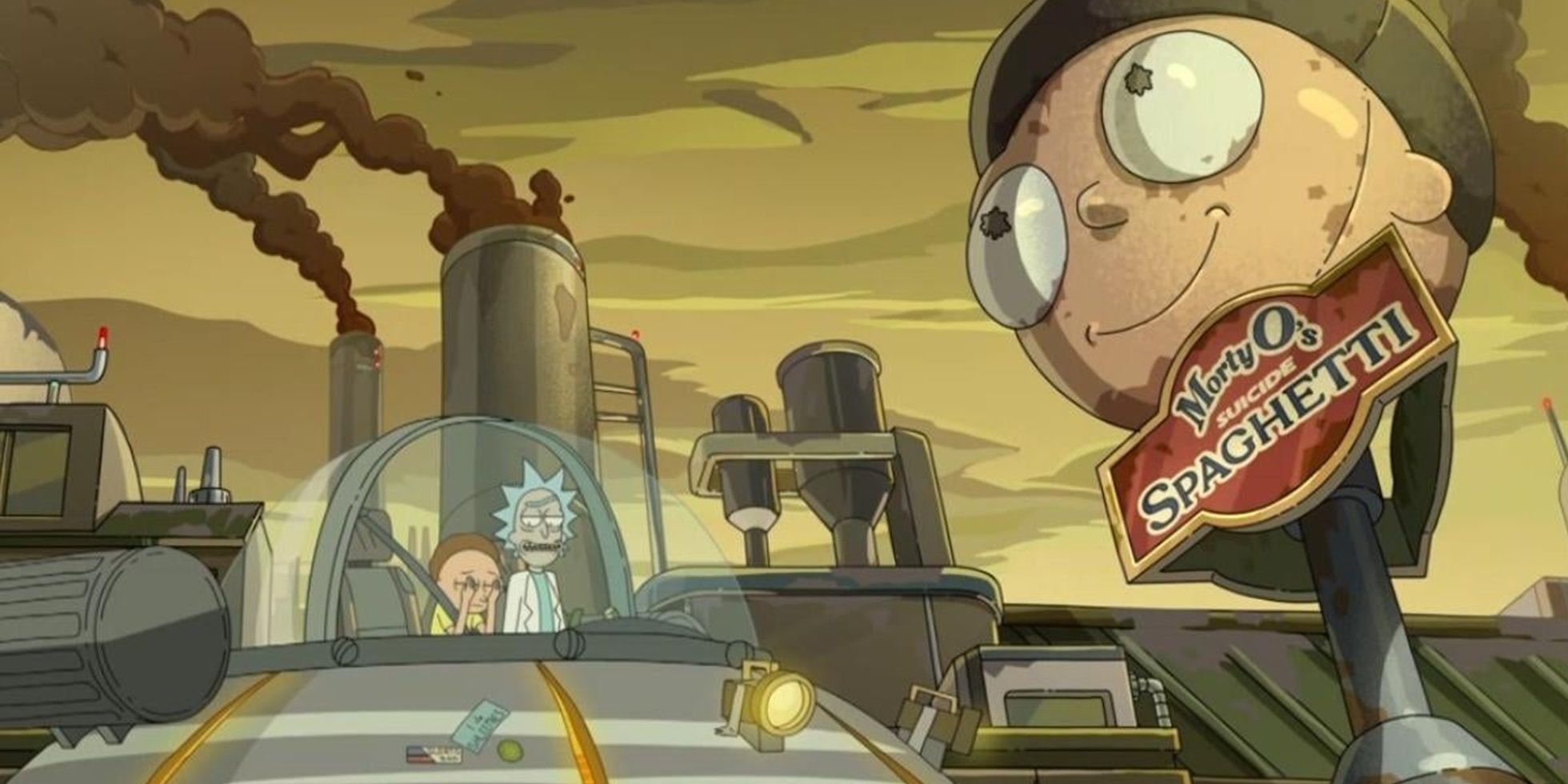Highlights
- "That's Amorte" is the best episode of season 7 so far, reuniting Rick and Morty in a dark exploration of the morality of the meat industry.
- The episode tackles a unique premise and offers two solutions to the ethical dilemma of consuming animal products.
- It satirizes capitalism and corporate greed, highlighting how they hinder ethical consumption. If the rest of the season maintains this quality, it can redeem a lackluster start.
Rick and Morty finally reunites its eponymous duo and resumes the show’s signature original storytelling in the best episode of season 7 so far. “That’s Amorte” begins with Rick introducing Morty to a world where suicide creates spaghetti and sees the pair trying to come up with an ethical way to get the spaghetti without exploiting the suicide. The episode uses this ludicrous concept as a roundabout way to discuss the morality of the meat industry. One common complaint about satire is that it’ll poke fun at something wrong with our society without providing any answers, but “That’s Amorte” actually provides two answers.
This is one of Rick and Morty’s darkest episodes, using a silly premise to explore a macabre subject. “That’s Amorte” revolves around a planet where people who take their own lives turn into delicious spaghetti bolognese. Unlike most Rick and Morty episodes, this one comes with a trigger warning due to its frank depictions and discussions of suicide. It might not rank among the very best Rick and Morty episodes ever made, but it’s a vast improvement over the previous season 7 installments. If the rest of the season can maintain this level of quality, then it’s not too late to salvage a run of episodes that was primed to become the show’s worst year.
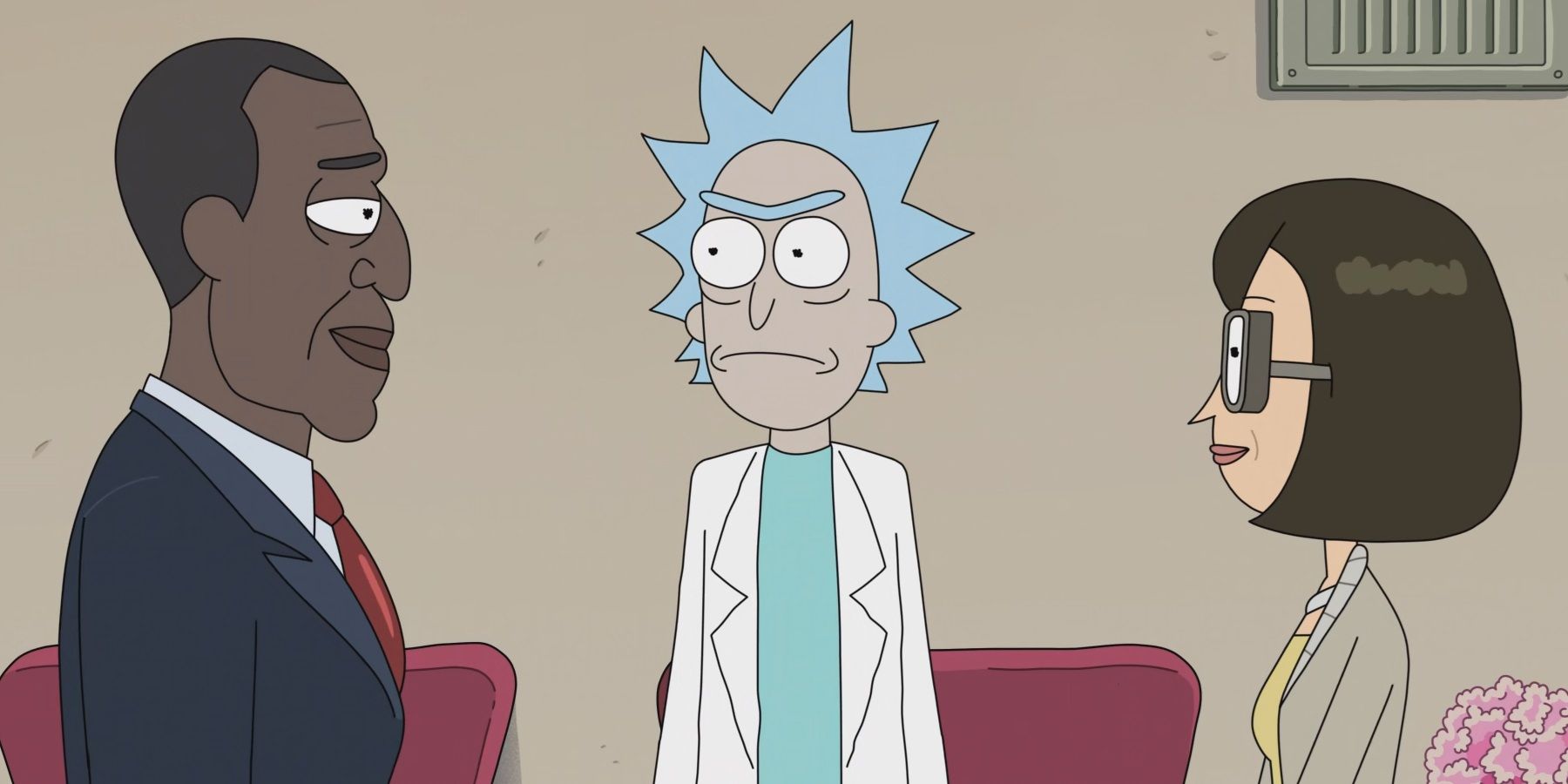
Rick And Morty Season 7 Episode 3 Review
Rick and Morty season 7 continues the show's decline with another Morty-free episode that relies on old storylines instead of original ideas.
The cold open sets up the episode perfectly. It starts out innocent enough, with the Smith family celebrating another “Spaghetti Thursday” with unlimited portions of Rick’s famous spaghetti. And then, true to the show’s style, it takes a dark, twisted turn when Morty pops into the garage to find out what the secret ingredient is and sees Rick ladling spaghetti out of a rotting corpse. Not only is this a hilariously shocking twist that fits neatly with the sensibility of the series; it also sets up the story right away.
As it sinks its teeth into a delightfully unique premise, “That’s Amorte” ultimately becomes an absurdist exploration of the ethics of killing living things for food. It’s similar to the Futurama episode “The Problem with Popplers,” in which all the characters are obliviously enjoying an alien delicacy before realizing they’re eating an otherworldly lifeform. Rick and Morty find that there’s no ethical way to get the tasty animal products without harming the animals. The episode doesn’t just comment on this issue; it offers two solutions to the problem, one tough but fair and another morbidly nihilistic. Either consider the animal’s entire life from birth to death before eating it, which will make the food unappetizing, or just don’t question where the food comes from and enjoy the flavors.
“That’s Amorte” is as much a satire of capitalism and corporate greed as it is a satire of meat consumption. As soon as the president of this alien planet realizes that eight billion people will pay to eat the innards of her suicidal constituents, she instantly starts trying to profit from it. Capitalism is the biggest obstacle standing in the way of ethical consumption – companies would stop slaughtering animals and selling their meat if it didn’t consistently make tons of money – and the episode understands that.
The biggest problem with previous season 7 episodes is that they recycled concepts from past Rick and Morty episodes to much lesser effect. The main premise in “That’s Amorte” is something that Rick and Morty has never tackled before. There are a couple of familiar ideas in this episode – the machine that broadcasts Fred Bunks’ entire life to the world is similar to the machine that imbues Simple Rick’s Wafers with the essence of true happiness – but writer Heather Anne Campbell gives it a whole new context that makes it feel fresh. The montage of Fred’s life story, set to a beautiful cover version of “Wonderwall,” is classic Rick and Morty: a sight gag that unexpectedly morphs into a profound meditation on life that hits right in the feels.
After three episodes sidelining Morty for Rick to go on solo adventures, “That’s Amorte” finally has the show’s title characters back together again. This is the first time that Ian Cardoni’s Rick and Harry Belden’s Morty sound completely natural. There were a couple of moments in the first three episodes where a certain intonation would sound a little off, which drew attention to the recast. But in “That’s Amorte,” they’ve settled comfortably into the roles formerly played by fired co-creator Justin Roiland and the voice work is totally seamless.
“That’s Amorte” is by far the best episode of season 7 to date. It feels like a return to form. This is the closest that this season has gotten to classic Rick and Morty. It brings Rick and Morty back together, takes aim at a rich satirical target, explores every side of the argument around its chosen subject, and even provides a couple of answers to the questions it ponders. If the rest of season 7’s episodes can be as great as “That’s Amorte,” then there’s hope for the series after all.
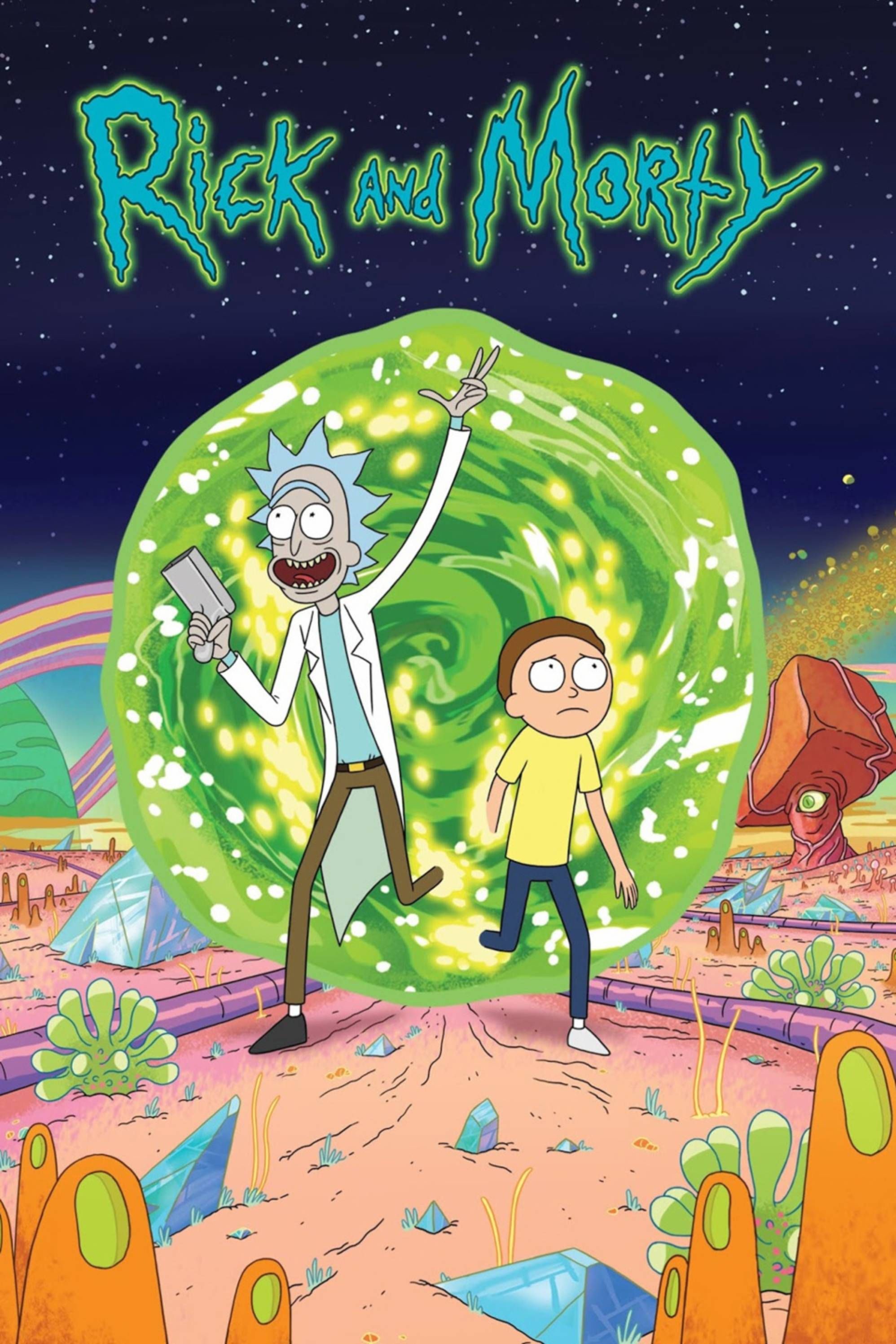
Rick and Morty
"That's Amorte" - Rick and Morty try to come up with an ethical way to consume animal products when they discover a planet where people who take their own lives turn into delicious spaghetti bolognese.

